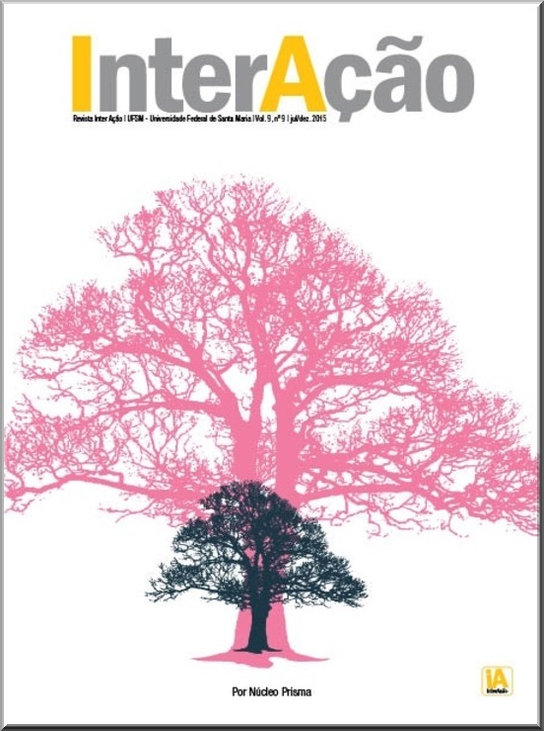Os conflitos contemporâneos e a teoria de Sun Tzu: novas abordagens, antigos postulados
DOI:
https://doi.org/10.5902/2357797517084Keywords:
comprehensive approaches, contemporary conflicts, indirect strategy, SunTzuAbstract
The current international scene is rather complex, especially since the 1990s, with the collapse of the Soviet Union and the consequent breakdown of bipolar world order. The transformation of the United States of America in the unique global superpower has not brought expected peace to the international system, which can be verified with various conflicts. Since then, the States have to adapt their strategies to the military demands arising from this new situation. In this context, this work aims to analyze the applicability of the theory of war proposed by Sun Tzu in the context of contemporary conflicts. To achieve this purpose, the following specific objectives were aimed: to study the concepts and strategies related to the comprehensive approaches of contemporary conflicts; to study Chinese strategy, highlighting the Sun Tzu’s theory of war; and to discuss the influence of Sun Tzu’s assumptions in the contemporary conflicts. A qualitative approach was used, valuing the epistemology of complexity. The categories considered were indirect strategy, knowledge of the enemy; concealment and forecasting, time, preparation of the battlefield, and leadership. A literature review was made by means of bibliographical investigation. The discussion includes the content analysis and triangulation of interviews and texts about new conflicts. Finally, we infer there is validity and applicability of the theories of Sun Tzu to contemporary conflicts, recommending his work to any strategist of the XXI century.Downloads
References
ALSINA JÚNIOR, João P. S. “O poder militar como instrumento da política externa brasileira contemporânea”. In: Revista Brasileira de Política Internacional, v. 52, n. 2, 2009, pp. 173-191.
AYOOB, M. The Third World security predicament. Boulder: Lynne Reinner Publishers, 1995.
BARDIN, L. Análise de conteúdo. Lisboa: Edições 70, 1977.
BOUSQUET, Antoine. “Chaoplexic warfare or the future of military organization”. In: International Affairs, v. 84, n. 5, 2008, pp. 915–929.
__________. The scientific way of warfare: order and chaos on the battlefields of modernity. New York: Columbia Univ. Press, 2009.
BUZAN, Barry et al. Security: a new framework for analysis. Boulder: Lynne Rienner Publishers Inc., 1998.
BUZAN, Barry; HANSEN, L. A evolução dos estudos de segurança internacional. São Paulo: UNESP, 2012.
CHENG, Dean. “Chinese Lessons from the Gulf Wars”. In: SCOBELL A. et al. (orgs.). Chinese lessons from other people´s war. Carlisle: Strategic Studies Institute, 2011. pp. 153-200.
DUARTE, Paulo. “Soft China: o caráter evolutivo da estratégica de charme chinesa”. In: Contexto internacional (PUC), v. 34, n. 2, jul.-dez., 2012. Disponível em: http://contextointernacional.iri.puc-rio.br/media/5artigo342.pdf. Acesso em: 12 de julho de 2013.
FRANKE, V. C.; DORFF, R. H. (orgs.) Conflict management and whole of government: useful tools for U.S. National Security? Carlisle: Strategic Studies Institute, 2011.
KALDOR, Mary. New and old wars: organized violence in a global era. Stanford: Stanford University Press, 1999.
KEOHANE, R. “The globalization of informal violence, theories of world politics and the “liberalism of fear””. In: Dialogue IO, v. 1, n. 1, jan., 2002, pp 2943. Disponível em: http://journals.cambridge.org/action/displayAbstract?fromPage=online&aid=149 065. Acesso em: 22 de dezembro de 2012.
MANWARING, Max G. The strategic logic of the contemporary security dilemma. Carlisle: Strategic Studies Institute, 2011.
MCNEILLY, Mark. Sun Tzu e a arte da guerra moderna. 4. ed. Tradução de Luiz Silva. Rio de Janeiro: Record, 2009.
MEI, Eduardo. “Estado, Guerra e violência: as “novas guerras” e suas implicações ara a teoria clausewitziana da guerra”. In: MEI, Eduardo; SAINT-PIERRE, Hector L. (orgs.). Paz e guerra: defesa e segurança entre as nações. São Paulo: UNESP, 2013.
MILLER, Frank. “The People’s Liberation Army Lessons Learned from Recent Pacific Command Operations and Contingencies”. In: SCOBELL A. et al. (orgs.). Chinese lessons from other people´s war. Carlisle: Strategic Studies Institute, 2011. pp. 201-236.
NATO (North Atlantic Threat Organization). Comprehensive operations planning directive. Brussels: NATO, 2010.
NYE, Joseph. Soft power: the means to success in world politics. Cambridge: Perseus Books Group, 2006.
OROZCO, G. “Securitización en tiempos de globalización”. In: GODOY et al. Construyendo lo global. Barranquila: Universidad del Norte, 2011.
PAPP, Daniel S. “The whole of government approch to security and beyond”. In: FRANKE, V. C.; DORFF, R. H. (orgs.) Conflict management and whole of government: useful tools for U.S. National Security? Carlisle: Strategic Studies Institute, 2011.
PETRY, André. “O século do Pacífico”. In: Veja, v. 2.318, abril, 2013. pp. 110-113.
PIZARRO Leóngomez, E. Uma democracia sitiada. Rio de Janeiro: Bibliex, 2006.
SUN-ZI. El arte de la guerra. Edición de Fernando Puell. Madrid: Biblioteca Nueva, 2001.
USAIS (United States Army Infantry School). Infantry in battle: from Somalia to the Global War on Terror. Fort Benning: USAIS, 2005.







